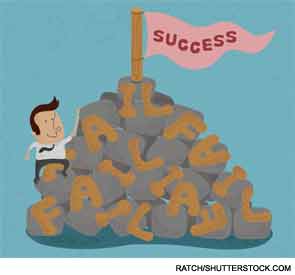
Success is not final, failure is not fatal: it is the courage to continue that counts.
—Winston Churchill
Try again. Fail again. Fail better.
—Samuel Beckett

The voicemail message from Isabel was brief. “Dr. Helfgott, please call me as soon as you can. I have a very important issue to discuss with you.” The caller was a premedical student enrolled in a tutorial on autoimmunity that I was leading at the Harvard College Biological Laboratories. Over the course of the year, we held weekly three-hour sessions discussing how aberrations in immune function lead to the development of selected autoimmune diseases. As the year progressed, students assumed more responsibility for leading the tutorials. Since the class size averaged only 10 students, I got to know each of them fairly well, and grading their knowledge and class effort was usually straightforward. Countering the grade inflation at Harvard, I limited the top grades to just a few students.
On the telephone, Isabel’s voice sounded highly emotional, as if she was on the verge of tears. She had just received her grade: B. She told me that she felt like a failure because this was the lowest grade she had received at Harvard, and possibly in her entire academic career! She described how hard she worked throughout the year and how she felt that I was failing to acknowledge her effort. I recalled an adage told to me by a former mentor about only getting an A for effort in kindergarten. Isabel spent the next five minutes anxiously describing the implications of her now-flawed college transcript. She considered her goal of securing a spot at a top medical school to be in jeopardy. Never underestimate the angst of an undergraduate! Though Isabel did not appreciate my judgment at the time, her academic “failure” in Concepts of Autoimmunity may have been a blessing in disguise. Failing at a task can be healthy. It forces us to retool, to recalibrate. Through failure we mature.
How We Fail
As clinicians, we face failure every day. We fail to observe the telltale signs of a subtle diagnosis, such as a tiny tophus on a fingertip or a splinter hemorrhage. We miss a key element of a patient’s history and a significant exposure to an infectious illness may be overlooked. We prescribe medications that turn out to be ineffective or harmful. In the lab, failure and disappointment are common acquaintances. Cell cultures get contaminated and rodents become ill. Equipment fails. Hypotheses are wrong. For example, during the early days of biological drug development, there was a myriad of therapeutic targets for investigators to choose. Should rheumatoid arthritis be treated by targeting the T cell, the B cell, the interleukin-1 or interleukin-2 receptor, or the tumor necrosis factor receptor? With billions of dollars at stake, some companies chose wisely and others did not.
